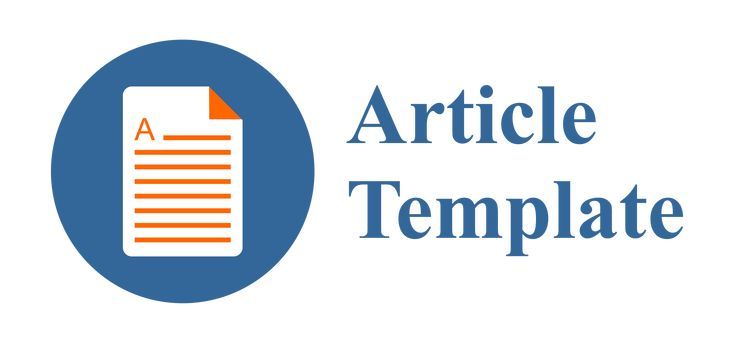Pengembangan Aplikasi E-Assessment Skill Programming berbasis Web
DOI:
https://doi.org/10.29408/edumatic.v6i1.5393Keywords:
e-assessment, programming, question, validity, webAbstract
In online learning, lecturers cannot assess students' programming abilities optimally. This is because the lecturer cannot see directly step by step in making program code. It is very possible that the program code sent by the student was not the result of his work. The purpose of this research is to develop a web-based assessment application using Jupyter Notebook. The development method uses Research and Development (R&D) with a quantitative descriptive approach to several development processes, including needs analysis, data collection, application design, testing, and implementation. The data collection technique uses literature study, observation, and documentation with data analysis using the Aiken'V validation test. The results of the research are the development of E-Assessment applications that can be used by lecturers and students in the programming learning process with the results of application system validation 0.88, application output 0.85, user security 0.85, display design 0.84, and user convenience 0.83 so that the E-Assessment application is suitable for use in assessing students on programming skills.
References
Andry, J., & Stefanus, M. (2020). Pengembangan Aplikasi E-learning Berbasis Web Menggunakan Model Waterfall Pada SMK Strada 2 Jakarta. Jurnal Fasilkom, 10(1), 1–10. https://doi.org/10.37859/jf.v10i1.1878
Bergersen, G. R., Sjøberg, D. I. K., & Dybå, T. (2014). Construction and validation of an instrument for measuring programming skill. IEEE Transactions on Software Engineering, 40(12), 1163–1184. https://doi.org/10.1109/TSE.2014.2348997.
Camara, W. (2020). Never Let a Crisis Go to Waste: Large-Scale Assessment and the Response to COVID-19. Educational Measurement: Issues and Practice, 39(3), 10–18. https://doi.org/10.1111/emip.12358
De Souza, D. M., Isotani, S., & Barbosa, E. F. (2015). Teaching novice programmers using ProgTest. International Journal of Knowledge and Learning, 10(1), 60–77. https://doi.org/10.1504/IJKL.2015.071054
Efendy, Z., & Idris, M. N. (2021). Aplikasi E-Kafe Green Market Padang Berbasis Web. Edumatic: Jurnal Pendidikan Informatika, 5(2), 214–222. https://doi.org/10.29408/edumatic.v5i2.3988
Gavin, B. (2018). What is a Log File? How-To Geek. https://www.howtogeek.com/359463/what-is-a-log-file/
Glider. (2020). Online Coding Tests For Your Tech Recruitment Strategy To Build An Effective Team. https://glider.ai/articles/online-coding-tests-for-your-tech-recruitment-strategy-to-build-an-effective-team/
Grover, S. (2015). " Systems of Assessments " for Deeper Learning of Computational Thinking in K-12. Annual Meeting of the American Educational Research Association, 650, 15–20.
Gu, F., Zhang, W., Guo, J., & Hall, P. (2019). Exploring “Internet+ Recycling”: Mass balance and life cycle assessment of a waste management system associated with a mobile application. Science of the Total Environment, 649, 172–185. https://doi.org/10.1016/j.scitotenv.2018.08.298
Gupta, S., & Gupta, A. (2018). E-Assessment Tools for Programming Languages: A Review. Proceedings of the First International Conference on Information Technology and Knowledge Management, 14, 65–70. https://doi.org/10.15439/2017km31
Jupyter Team, J. (2015). Running a notebook server, Jupyter Team. https://jupyter-notebook.readthedocs.io/en/stable/public_server.html
Kittur, J. (2020). Measuring the programming self-efficacy of Electrical and Electronics Engineering students. IEEE Transactions on Education, 63(3), 216–223. https://doi.org/10.1109/TE.2020.2975342
Kluyver, T., Ragan-Kelley, B., Pérez, F., Granger, B., Bussonnier, M., Frederic, J., Kelley, K., Hamrick, J., Grout, J., Corlay, S., Ivanov, P., Avila, D., Abdalla, S., & Willing, C. (2016). Jupyter Notebooks—a publishing format for reproducible computational workflows. Positioning and Power in Academic Publishing: Players, Agents and Agendas - Proceedings of the 20th International Conference on Electronic Publishing, ELPUB 2016, 87–90. https://doi.org/10.3233/978-1-61499-649-1-87
Kong, S. C., & Wang, Y. Q. (2020). Formation of computational identity through computational thinking perspectives development in programming learning: A mediation analysis among primary school students. Computers in Human Behavior, 106, 106230. https://doi.org/10.1016/j.compedu.2018.08.026
Naik, N., & Jenkins, P. (2020). uPort open-source identity management system: An assessment of self-sovereign identity and user-centric data platform built on blockchain. 2020 IEEE International Symposium on Systems Engineering (ISSE), 1–7. https://doi.org/10.1109/ISSE49799.2020.9272223.
Ngo, M. N. (2016). Eliminating Plagiarism in Programming Courses through Assessment Design. International Journal of Information and Education Technology, 6(11), 873–879. https://doi.org/10.7763/ijiet.2016.v6.808
Panyahuti, P., Ganefri, G., Ambiyar, A., & Suryani, K. (2019). Safe Exam Browser Untuk Klien Android Pada Ujian Berbasis Web. Edukasi: Jurnal Pendidikan, 17(2), 212. https://doi.org/10.31571/edukasi.v17i2.1454
Pérez, F., & Granger, B. E. (2015). Project Jupyter : Computational Narratives as the Engine of Collaborative Data Science. Project Jupyter. https://blog.jupyter.org/project-jupyter-computational-narratives-as-the-engine-of-collaborative-data-science-2b5fb94c3c58
Python, R. (2015). The Jupyter Notebook Introduction. Real Python. https://realpython.com/jupyter-notebook-introduction/
Randles, B. M., Pasquetto, I. V., Golshan, M. S., & Borgman, C. L. (2017). Using the Jupyter Notebook as a Tool for Open Science: An Empirical Study. Proceedings of the ACM/IEEE Joint Conference on Digital Libraries. https://doi.org/10.1109/JCDL.2017.7991618
Su, H. (2020). Educational Assessment of the Post-Pandemic Age: Chinese Experiences and Trends Based on Large-Scale Online Learning. Educational Measurement: Issues and Practice, 39(3), 37–40. https://doi.org/10.1111/emip.12369
Tanti, T., Darmaji, D., Astalini, A., Kurniawan, D. A., & Iqbal, M. (2021). Analysis of User Responses to the Application of Web-Based Assessment on Character Assessment. Journal of Education Technology, 5(3), 356. https://doi.org/10.23887/jet.v5i3.33590
Utomo, D. W., Subhiyakto, E. R., & Kurniawan, D. (2018). Fair Assessment pada Kolaborasi Pemodelan Persyaratan Perangkat Lunak UML. Jurnal Nasional Teknik Elektro Dan Teknologi Informasi (JNTETI), 7(4). https://doi.org/10.22146/jnteti.v7i4.452
Vrachnos, E., & Jimoyiannis, A. (2017). Secondary education students’ difficulties in algorithmic problems with arrays: An analysis using the SOLO taxonomy. Themes in Science and Technology Education, 10(1), 31–52.
Wang, Y., Li, H., Feng, Y., Jiang, Y., & Liu, Y. (2012). Assessment of programming language learning based on peer code review model: Implementation and experience report. Computers & Education, 59(2), 412–422. https://doi.org/https://doi.org/10.1016/j.compedu.2012.01.007
Winda, F. R., Kurniawan, W., & Darmaji. (2021). Analisis Respon Pengguna Terhadap Penerapan Web-based Assessment pada Praktikum Fisika Dasar. EDUMASPUL: Jurnal Pendidikan, 5(1), 208–215. https://doi.org/10.33487/edumaspul.v5i1.1140
Wulan, A. R., Isnaeni, A., & Solihat, R. (2019). Penggunaan Asesmen Elektronik Berbasis Edmodo Sebagai Assessment for Learning Keterampilan Abad 21. Indonesian Journal of Educational Assesment, 1(2), 1–10. https://doi.org/10.26499/ijea.v1i2.7
Downloads
Published
How to Cite
Issue
Section
License
All articles in this journal are the sole responsibility of the authors. Edumatic: Jurnal Pendidikan Informatika can be accessed free of charge, in accordance with the Creative Commons license used.

This work is licensed under a Lisensi a Creative Commons Attribution-ShareAlike 4.0 International License.




